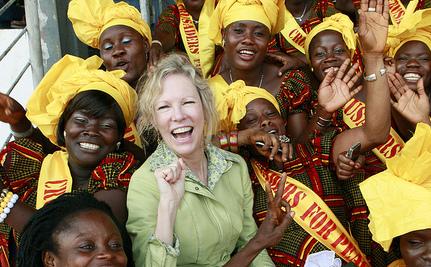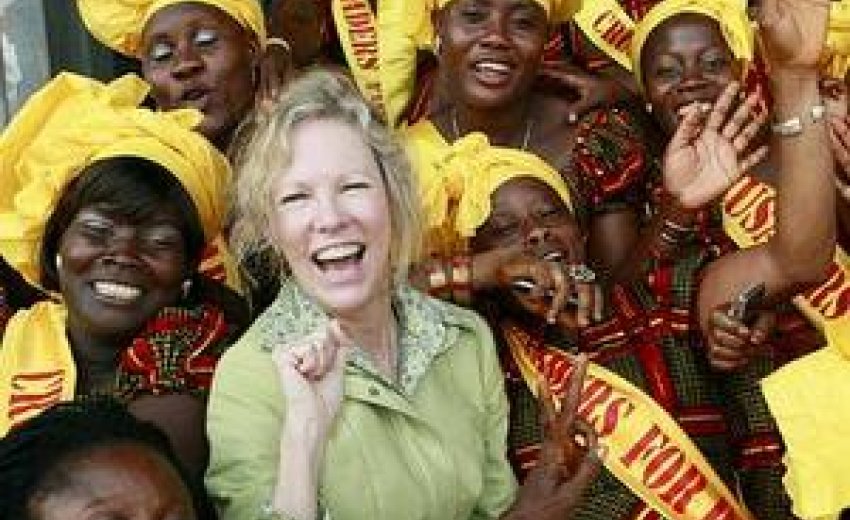Today, March 8, we are observing the 101st anniversary of International Women’s Day – a day that celebrates the political, economic, and social contributions women have made to the world. This is an important day for the United Nations Foundation because improving women’s health is one of our main priorities. This day brings the issues facing women and girls around the world to center stage and gives us the opportunity to develop partnerships and innovative solutions to help the UN address these issues. This year on International Women’s Day, we will celebrate the progress that has already been achieved, but also focus on the fact that there is still much to be done to solve the problems women and girls face in many parts of the world.
This year on International Women’s Day, we will celebrate the progress that has already been achieved, but also focus on the fact that there is still much to be done to solve the problems women and girls face in many parts of the world.
Supporting the UN’s fight to improve the lives of women across the world aids in the achievement of several of the UN’s Millennium Development Goals including alleviating poverty, improving maternal health, and promoting gender equality and empowering women. In many developing countries girls are unable to finish school for a number of reasons, however, studies conducted by the World Bank have proven that each additional year of secondary school boosts a girl’s future wages by 15 to 25 percent – up to 90 percent of which will be invested back into her family and community.
In other words: the welfare of women and girls is an important factor in the improvement of a nation’s social and economic outcomes.
The theme of this year’s International Women’s Day is “Connecting Girls, Inspiring Futures” – a theme that fits well with the work we do every day at the UN Foundation.
Our Girl Up campaign is a “for girls, by girls” initiative that gives American girls the opportunity to become global leaders and channel their energy and compassion to raise awareness and funds for UN programs that help adolescent girls around the world.
Girl Up spreads awareness of challenging issues facing some of the most vulnerable girls like Tigist – who ran away from her village in south Ethiopia at the age of 13 to escape being married off. Tigist is now part of a program called Biruh Tesfa that allows her to go to school for the first time and learn about her health and her rights. Biruh Tesfa is an example of an innovative solution that has the power to make a difference in the lives of women and girls across the globe.

